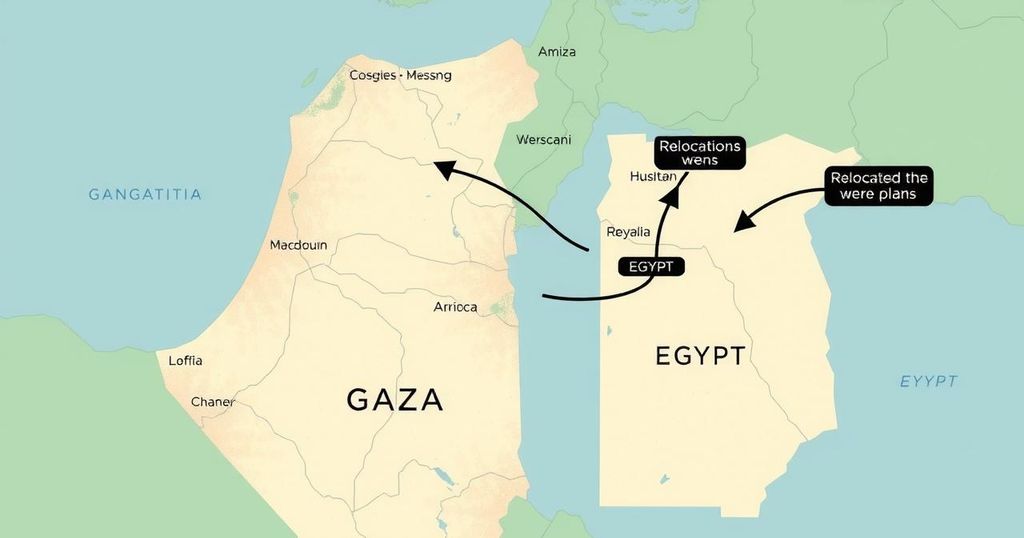Trump Temporarily Pauses Tariffs on Canada and Mexico Amid Ongoing Trade Tensions
President Trump has paused tariffs on Canada and Mexico for 30 days, while a 10% tariff on Chinese imports remains in effect. Agreements have been established with both Canadian Prime Minister Trudeau and Mexican President Sheinbaum to enhance border security and address drug trafficking concerns. The trade landscape remains uncertain amid ongoing tariff threats and potential retaliatory measures from Canada.
President Donald Trump has agreed to temporarily suspend the imposition of 25% tariffs on Canada and Mexico for a period of 30 days, averting a potentially damaging trade conflict between the two North American countries. In discussions with Canadian Prime Minister Justin Trudeau, an agreement was reached to strengthen border security to address migration and combat the flow of fentanyl into the United States.
Earlier, Trump had reached a similar arrangement with Mexican President Claudia Sheinbaum, who consented to deploying troops along her nation’s northern border in exchange for the U.S. limiting firearms supply into Mexico. However, it is important to note that a 10% tariff on imports from China is still set to commence, described by Trump as the “opening salvo” in a more extensive trade strategy.
Both leaders publicly touted the agreement regarding border security as a success. Trump emphasized his commitment to safeguarding American citizens, stating, “As president, it is my responsibility to ensure the safety of ALL Americans, and I am doing just that.”
In tandem with securing the border, Canada has announced a $1.3 billion initiative to combat fentanyl, including the appointment of a “fentanyl czar” and a collaborative effort with the U.S. to tackle drug-related crime and money laundering. This initiative had been largely anticipated based on previous announcements made by Canada.
Additionally, this pause in tariffs follows Trump’s earlier suspension of a separate tariff on Mexico after that country agreed to send National Guard troops to its border with the U.S. Trump characterized his conversation with President Sheinbaum as amicable, indicating a respectful working relationship.
The implementation of tariffs is framed by Trump as a means to bolster the American economy and protect jobs. He asserted that the United States remains a leading competitor globally due to its economic strength.
However, economists express concern that reciprocal tariffs could lead to increased prices on various goods, including essential everyday products. Prior instances of tariffs have already affected stock markets and led to disruptions in product availability.
Despite the temporary suspension of tariffs, concerns about a potential trade war remain. Premier Andrew Furey of Newfoundland and Labrador voiced these concerns, emphasizing the need for a diplomatic resolution to future trade issues.
The Premier of Ontario, Doug Ford, noted that while the 30-day tariff suspension is welcome, ongoing threats from Trump regarding tariffs require vigilance and preparedness from Canadian leaders.
Moreover, Trump suggested that the European Union might be his next target for tariffs without revealing specifics, leaving the future of international trade relationships uncertain.
This article discusses the recent developments in trade relations between the United States, Canada, and Mexico amid ongoing tensions regarding tariffs, particularly focusing on President Trump’s decisions to pause tariffs for North American neighbors while maintaining tariffs on Chinese imports. Key agreements revolved around border security enhancements and measures to combat drug trafficking, demonstrating a shift in diplomatic focus to collaborative border control efforts rather than an escalation of trade disputes. The article highlights the implications of these tariff decisions on both U.S. and Canadian economies, forecasts potential retaliatory measures, and reflects on the broader context of international trade policy under Trump’s administration.
In summary, President Trump has temporarily paused tariffs on Canada and Mexico for 30 days while maintaining a tariff on Chinese imports. Key agreements were made between the U.S. and its North American partners focused on border security and drug trafficking efforts. Although the temporary suspension has provided some relief, concerns about future trade tensions and economic impacts persist, illustrating the delicate balance in U.S.-Canadian relations amidst ongoing tariff discussions.
Original Source: www.bbc.com








Post Comment